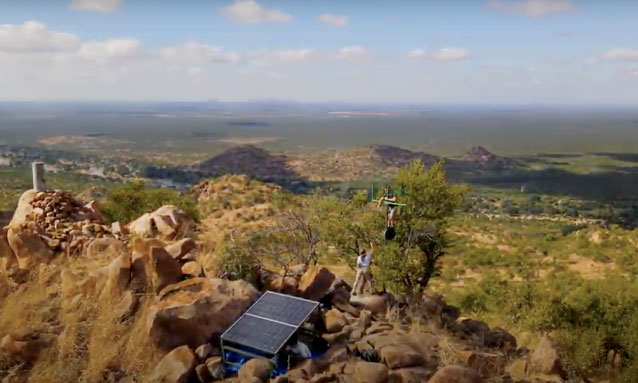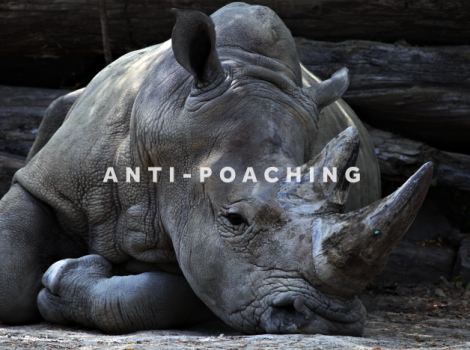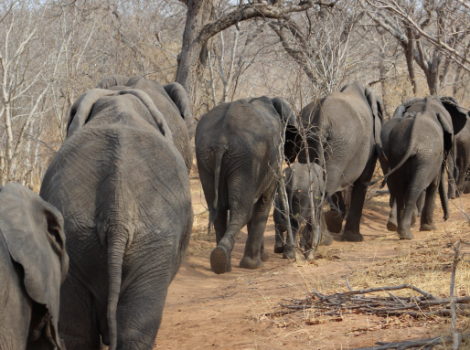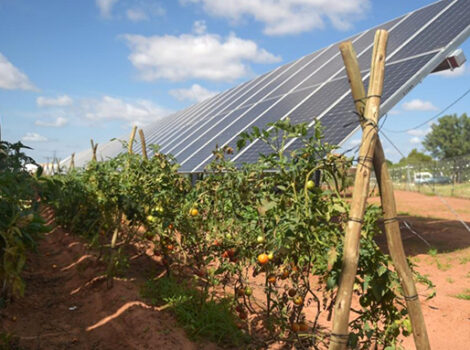
Utrecht, May 2021 – The Timbo Afrika Foundation and Smart Parks has realised the first Smart Parks system in Botswana. From now on, African wildlife will be protected in the “Central Tuli Game Reserve” with smart, advanced technology. Moreover, this will enable the relocation and introduction of endangered and disappeared animal species.
The roughly 70,0000-hectare game reserve was bought in part by investor and philanthropist Albert Hartog, who wants to clear the area of old fences and barbed wire to create a “wildlife corridor”.
This would serve as a free and safe connection between adjacent nature reserves to allow wildlife to walk their original migration routes. During the installation executed by Smart Parks last April, a LoRaWAN® network with five gateway installations and several sensors were successfully deployed.
The new technology enables staff, guides and researchers to monitor vehicles, rangers, roads and the recently constructed 30 km high-tech, advanced and electrified fence that separates humans from the habitat of the wildlife reserve. The LoRaWAN®network will enable the park management to deploy battery-powered sensors and devices across its entire wildlife reserve to accurately monitor wildlife and collect fine-scale data. This will allow the Koro park management to optimise efficiency in operations within the landscape they manage.
Prevention of Human-Wildlife Conflict incidents
Human-Wildlife Conflict incidents have long been a pressing issue throughout Africa. This is a recurring problem for farmers, park managers and owners of nature reserves and wildlife parks. Habitat loss has become the greatest threat to African wildlife. For example, as their habitats shrink, elephants are progressively forced into closer contact with people, resulting in more frequent and severe conflict over space and resources with consequences ranging from crop-raiding to reciprocal loss of life. On occasion, lions, leopards and hyenas prey on farmers livestock and are often shot as a result. These incidents regularly have a fatal outcome for humans and wildlife. Dutch organisations, Timbo Afrika Foundation and Smart Parks have joined forces with support from the Botswana Department of Wildlife & National Parks to reduce these incidents.
Smart Parks technological solutions
The Smart Parks LoRaWAN®network collects data from the advanced sensors and devices scattered throughout the reserve. The sensors track wildlife and send accurate information through the LoRaWAN®network about roads, gates, vehicles, water, fuel tanks and buildings, which simplify operational planning and park management. The electrified fence will be monitored with the use of fence sensors, measuring the voltage of the fence. If the fence is destructed, the fence sensors will send a notification to the control room, enabling the maintenance team to respond immediately. All sensors’ data is processed in an easy-to-use web application. This application provides accurate information from all sensors in the park.
Tim van Dam, Director of Smart Parks, says: “This is the most advanced Smart Parks we have implemented to date. It is a huge challenge to work in these areas, but the dedication of everyone involved exceeded all our expectations.
During the deployment, one of the local staff members said: “Sometimes we have to give all our energy to animals because they can’t help themselves. Therefore, we have to work hard for wildlife.” Our team could not agree more.
Albert Hartog, philanthropist, an investor in the Central Tuli area and owner of the Timbo Afrika Foundation says: “Having your own wildlife reserve is an immense job. Fortunately, this area in Central Tuli lends itself well to nature conservation and wildlife management. One of the main goals of the Timbo Foundation is the relocation and introduction of endangered and disappeared animal species.
“They must be animals that originate from the region”.
“I especially hope that the white and black rhino will return to Tuli. The numbers of these iconic animals have declined dramatically due to poaching. In fact, the black rhino is so endangered that there are only about 5,600 individuals left in the wild.
The first rhinos should be back here in the autumn of 2021. With the installation of Smart Parks, we have further prepared the area. You can only relocate endangered species if your protective measures against poaching and Human-Wildlife Conflict incidents are in order. Fortunately, that is now the case with this latest advanced technology from Smart Parks. We are proud of it.”
In the future, the network will be expanded with more functionalities, including digital cameras, acoustic sensors and the latest OpenCollar Edge sensors with embedded machine learning functions.
Smart Parks documentary
Studio Harmens joined the team during this expedition and shot beautiful footage; the photos can be found via the gallery: http://www.smartparks.org/gallary-smart-parks-koro-botswana/ Through the documentary, the team says it wants to show and have others experience what it means to build a Smart Parks. The documentary is set for release later this year. Watch the trailer here:
Source: http://www.smartparks.org/news/central-tuli-game-reserve-becomes-first-smart-parks-in-botswana/



